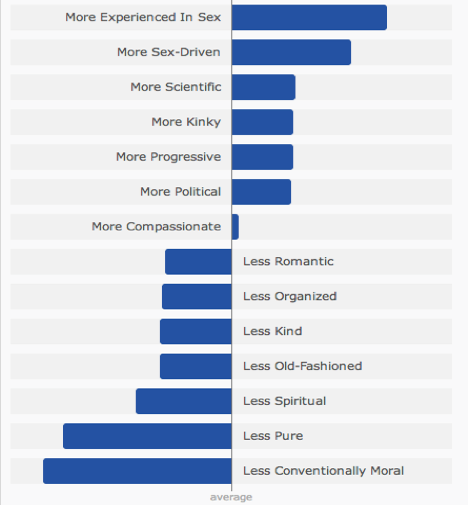Online Dating…. for Psychotherapists? What Should Mental Health Professionals Consider When Using Personal Ads?
This article was originally published in the July/August Vol. 22 No. 4 issue of The National Psychologist.
Many people search for love on online dating sites, and why should psychologists be any different? We also want to meet people for activities, dating, and romance. Sometimes, looking for love online is good way to get outside of our usual social circles without going to bars or singles events. But having an online dating profile can also pose challenges to clinicians who worry how it may affect clients, students, or supervisees to see them putting their hopes and hearts into prose while searching for intimacy on the Internet.
There is literature focusing upon the challenges of running into clients or trainees in the offline world but online personal ads can reveal a lot more intimate information to those who stumble onto your profile than would be typically revealed by showing up at the same event. There is also the additional possibility that if a client doesn’t tell us they saw our profile, we may never know it was seen by them and we won’t know how it affected them.
In a recent study of 227 clinicians on the Internet, 16% reported using online dating sites, 3% reported accidentally finding a client’s personal ad on such a site, and 2% reported intentionally searching for and finding personal ads belonging to a client (Kolmes & Taube, 2012). If your clients, students, or supervisors are in a similar age group as your dating pool, it may only be a matter of time before these online encounters occur.
Here are some strategies for clinicians venturing into online dating:
- Some clinicians choose to mask their profession in their profiles, noting that saying they work in mental health can create awkward interactions when dating or may invite potential partners to search for their professional websites. If this concerns you, consider waiting to meet before you share your occupation.
- Be aware that Google image search makes it possible for people to drag and drop a photo into a search form and find all other sites on which that photo appeared. So you may wish to use a different photo and not use any of the ones you have used on your professional website.
- Consider not posting a photo at all. You can let interested persons know you are willing to send a photo via email if they like what you wrote in your ad. This is one way to be careful about who might recognize you, but it also makes you less “competitive” in the world of online dating since most people use photos to screen potential dates. It also isn’t a guarantee that the person you send a photo to isn’t a client or student posing under a pseudonym or using a fake photo on their own ad.
- If you do use your photo, consider presenting a more generic and less “sexy” profile. Craft your profile with the awareness that it may be viewed by clients, students, professors, or even those in your client’s lives who know they see you. Some clinicians feel strongly about their right to a personal life and they don’t want to “clean up” their ad. At the same time, it’s worth thinking about how you would feel if any of your clients were to see a photo of you posed in a revealing outfit, holding a glass of wine, or listing your favorite Friday night activities.
- Many dating sites provide “sexy” questionnaires on things such as kissing styles or questions about deeply held beliefs on a variety of topics. If there is something posted that you wouldn’t want a client to see, take it out. This may, unfortunately, also lead to a relatively bland profile.
- But this could be the alternative! (One user’s OK Cupid profile graph shared below.)

- If you use a social media policy in your practice, you might use your policy to acknowledge that online dating sites are another space in which you may “cross paths” outside of therapy and you can encourage clients to bring it back into treatment if they see you on a site and they have feelings they want to discuss about it. This can help normalize such an event and help clients to know that it’s not a taboo topic.
- A twist on the above would be to note your profession in your dating profile and acknowledge briefly in your ad that any clients viewing your ad are welcome to bring it back into the office if they care to discuss it.
- A suggestion offered by Michael Brodeur, Psy.D. of Washington State University is to have a trusted colleague review your profile and let them recommend edits. This isn’t a bad idea considering that your colleagues may also view your profile and they may form opinions about your sensitivity and awareness of the impact of your profile on your clients, thus influencing how they feel about referring or consulting with you.
Reference:
Kolmes, K., Taube, D. O., (2012). Seeking and Finding Our Clients on the Internet: Boundary Considerations in Cyberspace. Professional Psychology: Research and Practice.

Online Dating…. for Psychotherapists? What Should Mental Health Professionals Consider When… | Society for Media Psychology and Technology (APA Division 46)
July 17, 2013 @ 4:22 pm
[…] https://drkkolmes.com/2013/07/16/clinicianpersonals/ – Ken via https://drkkolmes.com/2013/07/16/clinicianpersonals/ […]
January 20, 2016 @ 11:18 am
If a therapist uses their counseling skills on a potential date is there anything that can be done? If the potntial date talks online about a previous relationship and the therapist encourages the potential date to leave their current partner for them? I feel that this is highly unethical.
January 27, 2016 @ 3:19 am
If by counseling skills, you mean empathy, active listening, compassion, etc., I am not sure that a therapist has done anything wrong.
When we are out in the world, going on dates or hanging out at parties, even though we are therapists, we are engaging in having a personal life.
If you go out on a date with a therapist who in some way indicates that they are “providing psychotherapy,” rather than going out on a date with you, that would absolutely be inappropriate. Psychotherapy happens in the privacy of an office, it involves and Informed Consent process, and it is confidential. It usually entails payment for the time spent, and a clear frame of how much time the session will last.
Obviously, going to bars or restaurants with people and listening to their problems in those places should not be part of psychotherapy, and this would be considered by most to be a social relationship. Some therapists do give their friends or their romantic partners advice. As long as this is clearly a social context and the person doesn’t give special weight to this advice because it came from someone who happens to be a psychotherapist, I don’t see anything unethical about it.
One challenge psychotherapists do have when meeting new people is making it clear that it is a social connection and not a psychotherapy relationship. Some people do assign mystical, magical powers to people who provide therapy, thinking we are mind readers or we know all the answers. But generally speaking, good psychotherapy is largely about slowly getting to know people and their goals and dreams. It’s about not giving advice but actually helping people to get clear on their own values and helping them to find their own answers. It doesn’t mean we don’t share concerns about unhealthy patterns, but we usually help people find their own way instead of telling them what to do.
So the question for me would be: did you believe you were entering into a psychotherapy relationship with this person? Did you believe you were going to a therapist for professional counseling? Was the location of your interactions private? Was a fee exchanged? Did the person call it psychotherapy? Or was it just a date?
February 24, 2016 @ 3:37 pm
I have never encountered a client/patient in on-line dating. I am an aware clinician; have had a social media presence for many years — as a married and as a ‘single’ individual. I have never had any issues that crossed boundaries. However, recently, a younger man (16 yrs. younger) tried to ‘scam,’ me in an online dating presence for giving him money. As a savvy clinician and human being, I was aware of his attempt and let him know that I knew. I didn’t report him to any police or other authority as I didn’t have any proof, except verbal of his attempted scam.
February 20, 2017 @ 3:50 pm
Yes, it may be a problematic or inconvenient situation for the clinicians to put their ad in the dating sites. But we must believe that they have their own personal life apart from their profession. Finding love and listing out things that is true is not anything bad. But as far as your image on the society is concerned and you don’t want to be ironical, you should make your profile with some great ideas. And that should be in a simple and balanced way. No doubt, there will be many client or your student’s profile in the dating sites; but you should not intimidated by it and proceed further with bit precautions in your hand. Set everything in your profile in the right way and do the perfect categorization, so that there will be less chance that your clients will find you. Apart from that, you should ensure safety while dating online and do the background check on your interested dating partner to better know the truth. Also in this way, you can stay away from your clients or students.
December 17, 2017 @ 1:50 am
If a psychologist is lacking the awareness to create a profile within healthy and responsible boundaries… how are they even operating as an effective psychologist?